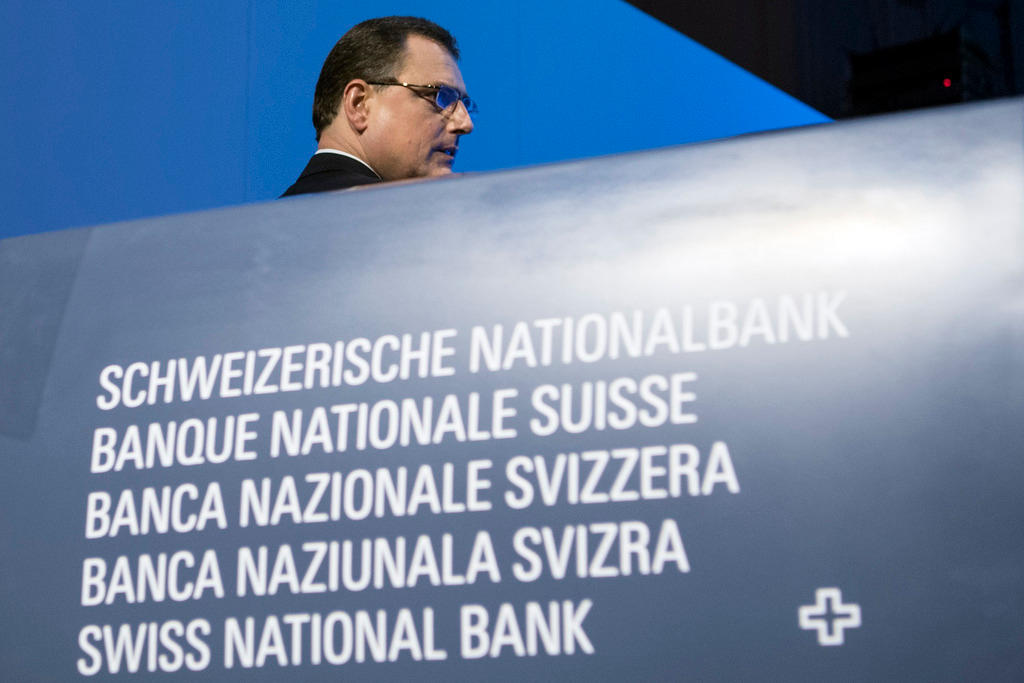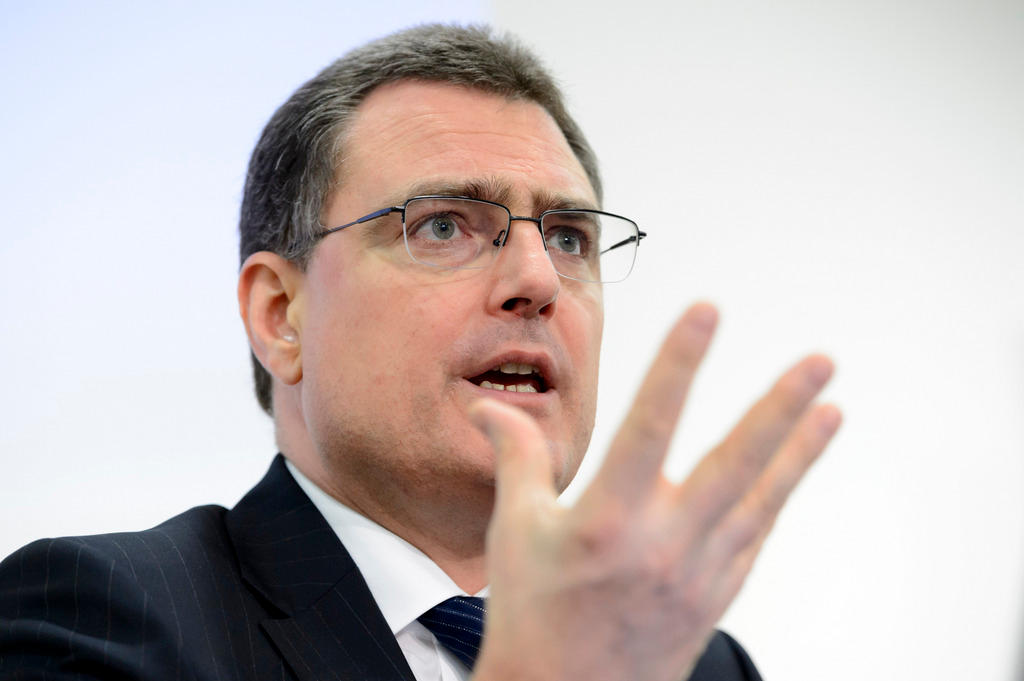‘Cosmetic reforms will not stop another financial crisis’

New international rules are not enough to prevent speculative bubbles and world financial crises, believes Sergio Rossi, professor of macroeconomics at the University of Fribourg.
According to this specialist in monetary affairs, to stabilise the banking sector there also needs to be structural reforms, like those proposed by the “sovereign money” initiative. He spoke to swissinfo.ch
swissinfo.ch: The “sovereign money” initiative proposes a radical reform of the monetary system in Switzerland. Why does the present system need to be changed?
Sergio Rossi: The current monetary system allows banks to grant loans without having assets to back them up, even if these loans are for financial activities which do not produce any benefits elsewhere in the economy. When that happens, the monetary supply increases excessively, meaning that there is no increase in the production of goods and services.
This creates inflationary pressures, even if these do not have an obvious effect on the market for consumer goods. So we need to have structural monetary reform so that banks can no longer abuse credit leveraging, because these abuses increase the financial fragility of the banking system as a whole.
“Another devastating crisis could emerge even sooner than many insiders think likely at present”
swissinfo.ch: According to proponents of the initiative, creation of money by commercial banks favours speculation and financial bubbles. How does that happen?
S.R.: The great majority of loans granted by banks go towards operations in the financial markets. The banks grant each other lines of credit with a view to buying up all kinds of financial assets, from which they can turn a high short-term profit. Most of these operations, which banks are carrying out at high volume every day, drive up the price of financial assets.
In this way, they induce other players in the economy to buy up these assets in order to speculate on their expected increase in value, in an upwards spiral which creates financial bubbles. But when a greater and greater number of debtors, including the banks, are unable to repay their debts, the financial bubble bursts and ruins not only the debtors but also the creditors in the banking system, given that banks are profoundly interconnected. This was shown by the “sub-prime” bubble that burst in the US and ended up being the spark that set off the world financial crisis in 2008.

More
Sovereign Money initiative in a nutshell
swissinfo.ch: Would the sovereign money system protect Switzerland from another such crisis?
S.R.: The system proposed by the “sovereign money” initiative would notably curtail speculative operations that banks have engaged in and still engage in, profiting as they do from the possibility of opening lines of credit in the inter-bank market without having the necessary financial backup to cover them in terms of the savings of their customers. It will not be possible to prevent further financial crises altogether, but with a structural reform of this credit mechanism it will be possible to avoid another crisis on a systemic scale.
What is at stake here is finding a way to prevent the entire financial system, that is, the economy as a whole, from falling victim to a devastating crisis – which is a scenario that could emerge even sooner than many of the “insiders” think likely at present.
swissinfo.ch: After the last global crisis new rules were introduced for the banking sector at the international level – which Switzerland has also signed up to – regarding the assets of major banks, for example. Is this not enough?
S.R.: The reform of financial regulation undertaken on the national and international levels is only a cosmetic reform, which will not prevent the triggering of the next financial crisis of a systemic nature. Think for example of the increase in assets required of the major banks: this reform is intended to leave the banks with their credit leverage, which they will be able to use as they please to make tidy profits in the financial markets. The increase in their assets will happen only after an increase in their risk exposure. If we really want to stop banks abusing their credit leverage, we need to take action on this leverage and not just on the consequences of its use.
swissinfo.ch: Will the system of sovereign money not excessively restrict the activity and the profit margins of commercial banks?
S.R.: Commercial banks can always gather the needed assets to carry on their financial operations from the deposit accounts of their customers, who take the risk of entrusting their money in exchange for payment of interest. But current or deposit accounts will be excluded from the balance sheets of the banks, so as to avoid depositors losing their savings if one or more of those banks fail.

More
‘The ‘sovereign money’ initiative would weaken Switzerland as a financial centre’
The “sovereign money” initiative in fact requires banks to open lines of credit to companies in order to sustain economic growth and employment, instead of speculating on the financial markets. Having less discretion to speculate in those markets, commercial banks will have a definite interest in increasing their loans to small and medium-sized businesses, thus boosting the local economy, with many positive repercussions for public finance and social cohesion.
swissinfo.ch: According to the government, the initiative cramps the SNB’s room for manoeuvre and its independence. Is that not true?
S.R.: The SNB’s room for manoeuvre would be greater than what it is now, in fact, because today the central bank is forced to accommodate the loan-granting choices of the banks by increasing the quantity of central money to avoid a banking crisis due to the bursting of credit bubbles. At present, the independence of the SNB, enshrined as it is in the federal constitution as well as federal legislation, means only independence from political influence. In reality, if you look carefully, at the operational level the SNB is not independent of the banking sector, since it cannot refuse to intervene to avoid a crisis arising from the banks which, singularly or all together, are too big to fail.
swissinfo.ch: Switzerland would then be the only country to have a system based on sovereign money. Does this not risk causing serious financial and economic turbulence for us?
S.R.: If the structural reform proposed by the “sovereign money” initiative stops banks abusing their credit leverage, the resulting greater financial stability would allow them to refinance with interest rates lower than the rest of the world. This will contribute to economic growth, all the more because the SNB will no longer be at the mercy of the short-term interests of banks which impose monetary policy choices at variance with the interests of the country in general.
Translated from French by Terence MacNamee, swissinfo.ch

In compliance with the JTI standards
More: SWI swissinfo.ch certified by the Journalism Trust Initiative




You can find an overview of ongoing debates with our journalists here. Please join us!
If you want to start a conversation about a topic raised in this article or want to report factual errors, email us at english@swissinfo.ch.